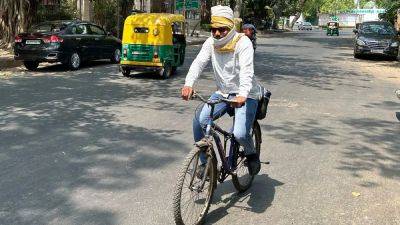Cambodia's famed Kampot pepper withers in scorching heatwave
KAMPOT, Cambodia — Farmer Chhim Laem shakes his head as he walks between long rows of dead bushes, their brown leaves scorched by heat and drought that have devastated Cambodia's famed Kampot pepper crop.
Known for its intense floral flavour, Kampot pepper is prized by top chefs around the world and sells for up to $200 per kilo.
Nurtured for generations in two provinces in southwest Cambodia, the pepper industry survived the genocidal Khmer Rouge and decades of instability, but now faces the threat of extreme weather driven by climate change.
"It is so hot this year, no rains, and we have no water to water the pepper plants," Laem told AFP. "So they all died."
South and Southeast Asia have sweltered in recent weeks under record temperatures, with governments closing schools, people dying of heatstroke and farmers praying for rain.
Scientists warn that human-induced climate change will produce more frequent, longer and more intense heatwaves.
In parts of Cambodia, the mercury nearly hit 43 degrees Celsius (109 Fahrenheit) in late April -- after a six-month drought that pushed farmers to a breaking point.
All 264 of Laem's pepper bushes perished, the 55-year-old explained, thanks to water shortages and hot weather.
Production has grown in recent years, boosted by the European Union granting the spice a "protected geographical indication" in 2016 -- meaning that only pepper grown in a designated area can be called Kampot.
The Kampot region produced about 120 tonnes of peppercorns last year, but farmers say that excessive heat and rain have made 2024 the worst on record.
Laem earned about $1,000 from his farm last year, but said he expects a fraction of that now.
"I am so sad, but I don't know what to do," he said.
Nguon Lay is a fourth-generation pepper farmer, harvesting nine tonnes from his nearby five-hectare farm last year.
But the 71-year-old farmer expected to harvest nothing this year.
"This year we meet the biggest obstacle," he said, while examining a dying pepper bush.
Torrential rain destroyed the plants' flowers earlier in the season, with more dying in the prolonged drought that followed.
"So it is the worst year. We don't know what to do. We see







